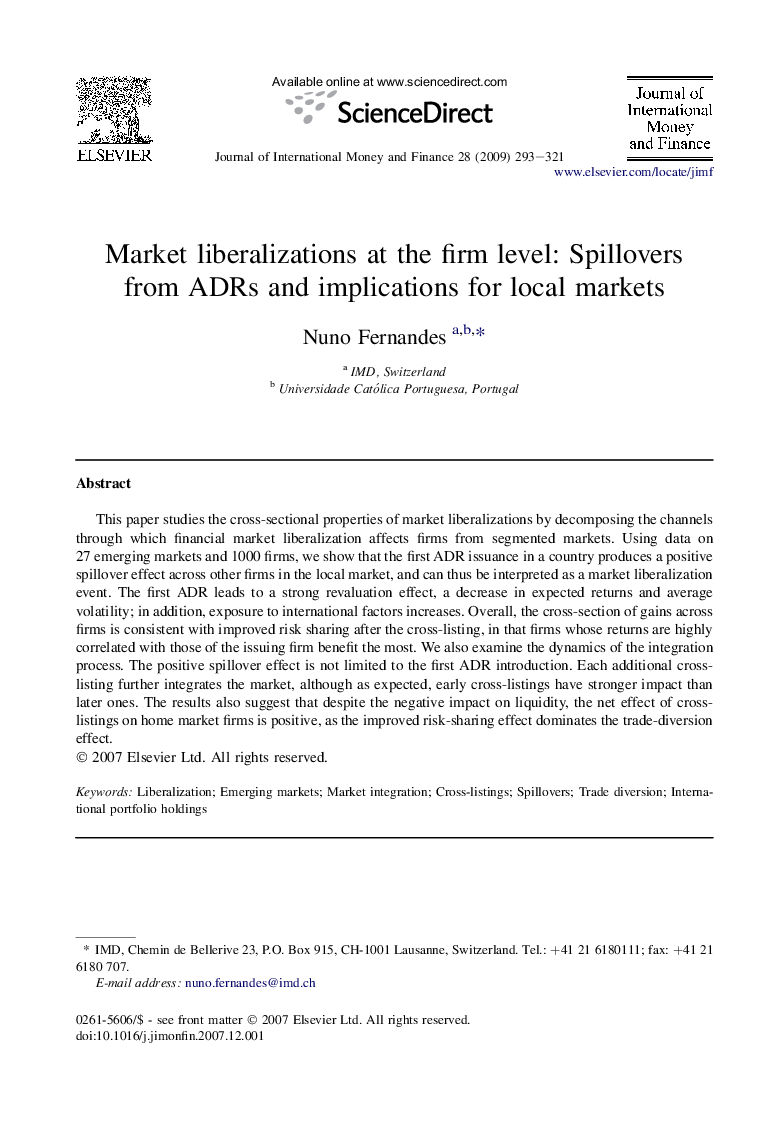| Article ID | Journal | Published Year | Pages | File Type |
|---|---|---|---|---|
| 964832 | Journal of International Money and Finance | 2009 | 29 Pages |
Abstract
This paper studies the cross-sectional properties of market liberalizations by decomposing the channels through which financial market liberalization affects firms from segmented markets. Using data on 27Â emerging markets and 1000 firms, we show that the first ADR issuance in a country produces a positive spillover effect across other firms in the local market, and can thus be interpreted as a market liberalization event. The first ADR leads to a strong revaluation effect, a decrease in expected returns and average volatility; in addition, exposure to international factors increases. Overall, the cross-section of gains across firms is consistent with improved risk sharing after the cross-listing, in that firms whose returns are highly correlated with those of the issuing firm benefit the most. We also examine the dynamics of the integration process. The positive spillover effect is not limited to the first ADR introduction. Each additional cross-listing further integrates the market, although as expected, early cross-listings have stronger impact than later ones. The results also suggest that despite the negative impact on liquidity, the net effect of cross-listings on home market firms is positive, as the improved risk-sharing effect dominates the trade-diversion effect.
Related Topics
Social Sciences and Humanities
Economics, Econometrics and Finance
Economics and Econometrics
Authors
Nuno Fernandes,
